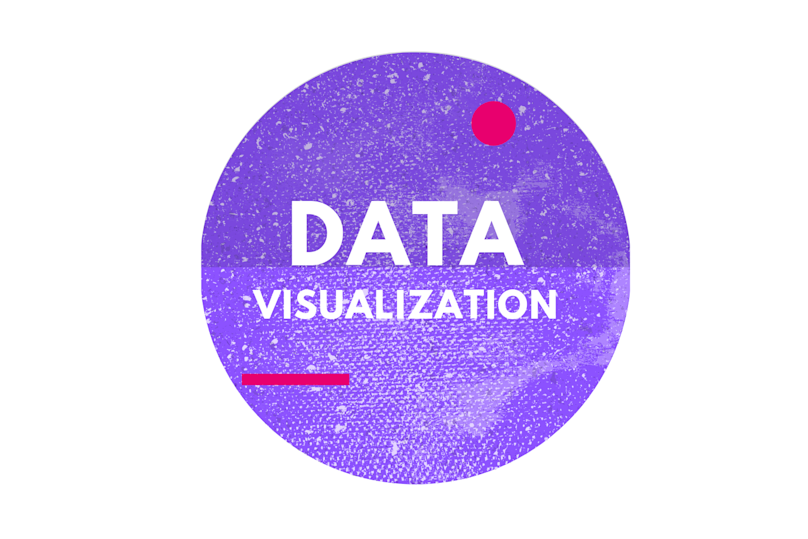Introduction
Business analytics (or Business Intelligence, BI) is less talked about today than Big Data or artificial intelligence. We hear about Big Data, immediately a taste of the future. We hear about business analytics, we remember something expensive and clumsy.
Maybe it's the myths that have developed around BI? After all, business analytics appeared a long time ago. Developed as a tool for solving specific practical problems. It has found application in all large companies, however, it is still rarely used by medium and small businesses.
Today, business analytics is a very simple way to apply information technology in order to succeed in business. Misconceptions and stereotypes can become an obstacle.
That's why we've decided to debunk the TOP 6 myths about BI.
Myth 1
Traditional analytical tools already have solutions for visual analytics
Real visual analysis simplifies the study of data. This is due to the visual and — most importantly — interactive interface. In real visual analysis, visualization is not just a display of the result. This is a display that you can “work with”: click, go deeper, change periods in seconds, explore and build hypotheses.
Unfortunately, many traditional BI tools are already outdated and are not suitable for such visualizations. Yes, they show the data in the form of a beautiful picture. But what's next? What happens if new questions come up? We have to go to IT specialists again and wait for a new report.
But the main value of visualization for business is not the end result, but the possibility of new ideas. And these ideas can only appear as a result of research — a “journey” through the data.
Myth 2
Modern BI is no different from traditional
To some extent, this is true. As a result of using any BI tool, you will get a visual (how visual — see Myth 1) picture with data. You will be able to visually evaluate this or that indicator.
But — today, not only the result that is important. But also the way to this result. Agree, in order to get from Kaliningrad to Vladivostok, you will rather buy a plane ticket, and not go by train or by car.
The same thing happens when choosing a BI tool. Modern BI is an opportunity to quickly get a clear, useful, and interactive visualization. This is an opportunity to connect any data sources. This is an opportunity to work with data even without special technical education.
Myth 3
The high cost of “switching” to modern BI-tools
You have already invested money, time, and resources in your data analysis strategy. We purchased software, implemented it, and hired a staff of specialists. And analytics is working, reports are being made. It is clear that I do not want to spend money on some innovative BI product again.
But — if you calculate your costs in the future — for maintaining and updating installed software, for hiring and paying specialists for this software, then it becomes clear that the transition to a modern BI solution is quite a profitable project:
— you save on implementation (just download and install the software)
— you save on specialists (the manager will be able to do analytics and reporting himself, without resorting to the help of IT)
— you save on technical solutions (for example, Tableau allows you to connect any data sources)
Myth 4
All that is needed for the company to have a modern BI is to install new software and reap the benefits of innovation
This myth is closely related to the previous one. No need to think that after installing a new BI tool, your company will immediately start creating understandable and useful visualizations.
There will definitely be those in the company who have enough Excel. Or those who find it difficult to deal with new tools. The process of implementing a new BI is not just “download and install". This is the involvement of employees, their training to work with a new tool, internal meetings, and exchange of experience. Only in this case, everything will work out.
Your employees and colleagues need support!
Myth 5
Modern BI for data is a complete chaos of self—management
For many IT specialists, modern BI seems to be absolutely unreliable from the point of view of data access management. All information is available almost online — anyone can come in and find out our secret data.
In fact, this is not the case. If you choose Tableau, then you can install this software on your server and then no one except your company will have access to the data.
In addition, there is a clear hierarchy of access to data within the company. It's all quite easy to set up inside Tableau. No one will see any unnecessary information and will not be able to work with it if they do not have the necessary access.
Myth 6
Switching to modern BI is very difficult
If you think so, then either you have never implemented modern BI, or you have had the experience of complex implementation of traditional BI.
In reality, of course, everything is not simple. Depending on the size of the company, the amount of data, and reporting requirements, the implementation of the new Tableau BI tool will take from 1 day to 2 weeks maximum (in the most difficult cases).
You have 2 ways:
— Independently study all the difficulties, prepare and fully implement the new BI tool yourself.
— Find a partner, a BI expert, a company, and, under the strict guidance of those who already know all the pitfalls and have the expertise, successfully implement a new BI.
Usually, the implementation path consists of 3 stages:
— Preparatory. We plan and think over what data, sources, and reports we will need. Training of the main users.
— The actual implementation.
— Testing, collecting feedback from business users, and solving any questions that arise.
If you are thinking about quick reports and interactive visual analytics check our Business Intelligence Services.
We are an alliance partner of the visual analytics platform Tableau Software.
It allows our customers and partners to analyze their data more effectively by visualizing it quickly and easily and identifying new business insights and opportunities.
Exploring the Business Facets of Software Development
The business strategy behind software development is as crucial as the technology itself. At Mobile Reality, we provide a deep dive into the various business models, methodologies, and strategies that drive profitable and efficient software creation. Our comprehensive articles are designed to guide you through the complexities of the custom software development business:
- A guide through software development models
- Fixed price vs T&M or mix in software development
- Fintech Development Outsourcing Guideline for Executives
- In House vs Outsourcing Software Development in 2025
- Onshore vs Nearshore vs Offshore Software Developement
- Kanban vs. Scrum vs. Waterfall in IT Projects
- Product Development Workshops with Mobile Reality
- No Code / Low Code vs. Custom Traditional Development
- Building profitable digital web, mobile apps and products
- How technologies help to protect nature : 5 cases
- Generative AI in software development
- 5 key aspects of successful project management
- Discover the Best ESG Software Solutions for SMEs
- Everything To Know About Medicine Delivery App Development
These resources are crafted for those looking to refine their approach to building and managing software projects. Whether you’re contemplating the most effective development methodology, weighing the pros and cons of outsourcing, or deciding on the right pricing model, our insights can lead to informed decisions. Contact our team for a personalized consultation on software development business strategies. We’re here to help you navigate the path to success in the digital product landscape.





